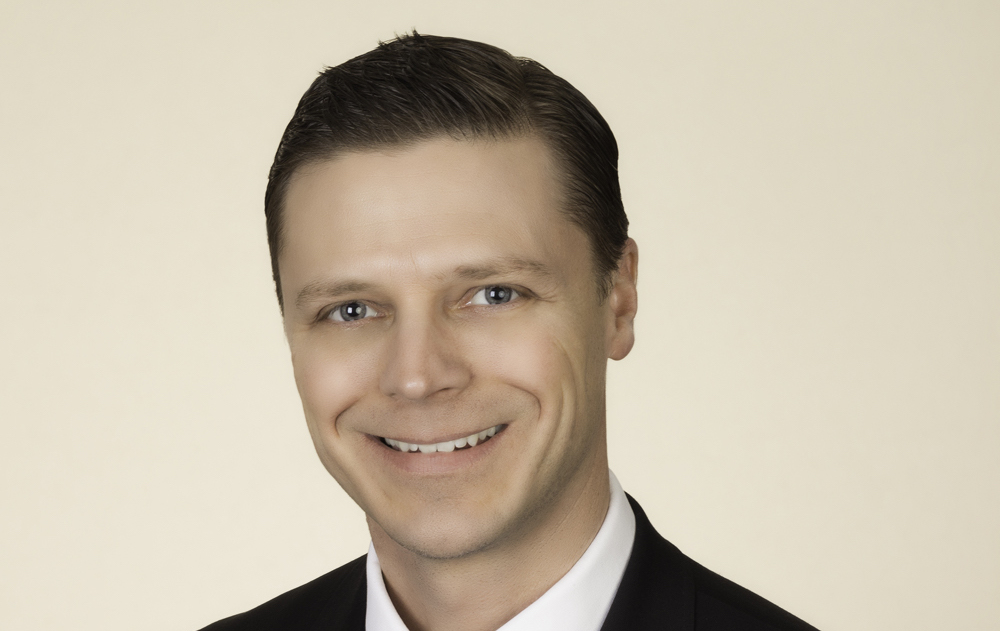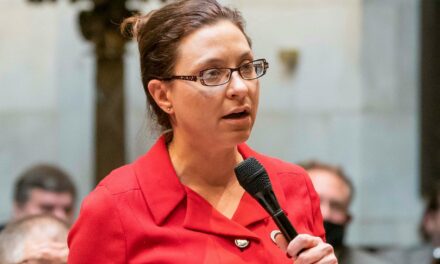
Budget would provide $15 million to HSHS Western Wisconsin to expand mental health bed capacity

Tucked into the state’s 2019-21 budget bill is $15 million that would head to two western Wisconsin hospitals to expand their mental health services.
Republicans proposed funding a northern Wisconsin regional crisis center early last week in a revised version of Gov. Tony Evers’ capital budget. The Assembly and Senate are planning to vote next week on the proposal.
Sen. Kathleen Bernier, R-Lake Hallie, and Rep. Jesse James, R-Altoona, pushed for the funding due to concerns from local officials and law enforcement about transporting patients in a mental health crisis across the state to available beds.
The money would add mental health beds at HSHS Sacred Heart Hospital in Eau Claire and HSHS St. Joseph’s Hospital in Chippewa Falls.
Bernier said that it would better position the facilities to serve residents of the 29 counties in northern, western and central Wisconsin.
“This plan is good for our community and great for people in need of treatment,” Bernier said in a statement.
James said the proposal could save county and local governments more than $2.7 million every year by reducing the time it takes for transports.
Andrew Bagnall, president and CEO of HSHS Western Wisconsin Division, said that the proposal aligns with the health system’s mission of meeting the community’s needs.
“We’ve been caring for this region for over 130 years,” Bagnall said in an interview with Wisconsin Health News. “This project does directly tie into that and how we can best serve the community.”
Edited excerpts are below.
WHN: What does this proposal do?
AB: The $15 million is aimed to expand our inpatient behavioral health capacity in our region. Currently, beds are limited and access to those beds has been a challenge. Our current inpatient behavioral health unit that we have at Sacred Heart Hospital today is a 29-bed unit. It’s a shared adolescent and adult unit. And while we have been meeting the region’s needs for many years, we do have a lot of capacity challenges given the mix of patients that we have, whether it be adult or adolescent because it’s a shared unit. The other piece of this is that the current demand for those services far outweighs what we have available from a bed perspective to care for those patients.
WHN: How does this affect law enforcement?
AB: If this bill goes through, we will add an additional 18 beds and create an 18-bed dedicated adolescent unit at St. Joseph’s Hospital in Chippewa Falls. And we will expand our current 29-bed unit at Sacred Heart. And that will be a dedicated adult unit, which will be 33 beds. So we’ll add an additional four beds. With that, we’re going to have 22 additional beds to care for patients in this region that today, if we don’t have the access or availability for them because we’re full, are currently being shipped to other sites.
It creates a couple of challenges. So in one aspect, it’s the emergency detentions that is specifically referenced in the bill. And therefore, the local law enforcement, when we don’t have beds available for those patients, are transporting them over to Winnebago (Mental Health Institute in Oshkosh) across the state. And as you know, it’s costly. It’s also very time consuming for the state and not ideal for the patient as well.
Our goal in addressing this need is to not only provide greater access to these services in this region so that people get access and not have to travel far distances. But we also hope that we can get to these patients sooner before they reach a crisis. So therefore, if they need our services in these units prior to reaching a point where they’re being detained, that may actually prevent detentions from even occurring in some of these cases. There are around 700 individual emergency detentions in this region per year that are being sent over to the other side of the state.
Again, this is to help that situation. It goes a long way in addressing the challenges that we have today in this region with this. But certainly, we’ve identified mental health as being the number one community needs concern that we have in our community when we did our community needs assessment. This is something that we can do in partnership with the state to help with that.
WHN: Why were you chosen for this?
AB: I think one is we’ve done a great job and we provide a high quality service today…I think the other piece to that is we have the ability to expand. Part of it was right place and right times in terms of what we had for facility space that we could renovate and put together in a reasonable time.
WHN: How did this plan develop?
AB: Sen. Bernier reached out to us a little over a month ago, maybe a month and a half ago, and posed the question to us. And then our team pulled together quickly. So with our behavioral health team, our leadership as well as resources from the system, we pulled together a package that we believed would make sense in response to Sen. Bernier’s question related to if we could expand our capacity to serve in this way. So we rapidly pulled that together. Again it made it a little bit easier for us to do it in a short timeline because we already had the program in place. And we already know what our operating costs are and how we’re already running our program.
WHN: If this goes through, how fast would you be able to have these beds available?
AB: We’re anxiously awaiting that piece of it and then we would have to work with the state and Sen. Bernier to determine how those funds get disbursed and the process for that. So those kinds of things would need to be outlined. On our end, we could move pretty quickly. We would need to work through our schematic design and get to work on that really fairly quick because we have the space available today. We haven’t identified a start date yet because we want to make sure we put one foot in front of the other with the process. We know there’s some approvals left in this and we also know that there’s some work to do in terms of how those funds would be disbursed and how we would work to get those done.
There’s some regulatory things that we would need to work through as well, which we would get started on immediately in terms of making sure that we’ve got all the proper approvals from the state and the (Department of Health Services) to know in terms of the work we have to get done. So we do have the schematics, if you will, kind of high-level diagrams done already in terms of where those placed beds and the design of the unit would be. So that piece, we’ve come a long way with that already. It’s just a matter of making sure that we get everything lined up in the timing of when we can work with the state to get moving on that project. We would hope that it would be yet this coming year, that we would really move fast.
This article first appeared in the Wisconsin Health News daily email newsletter. Sign up for your free trial here.





